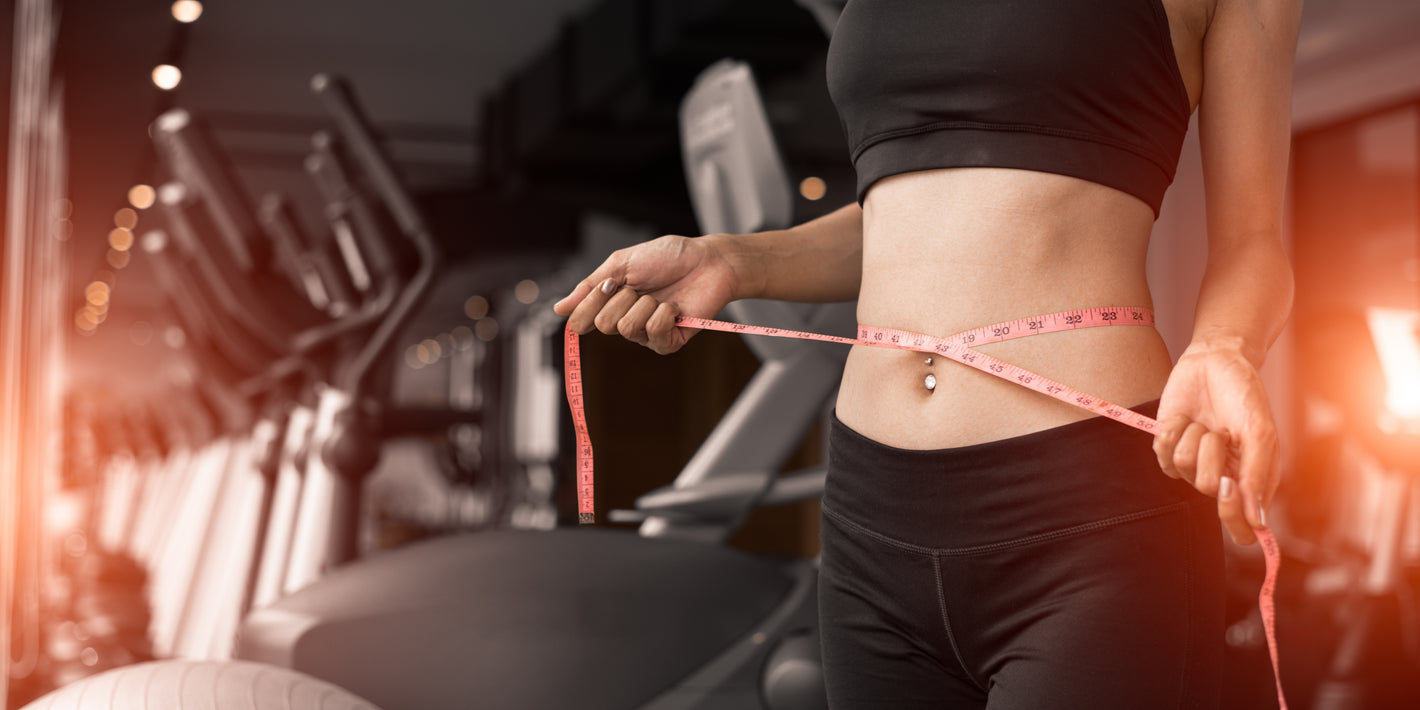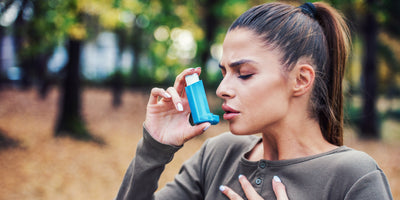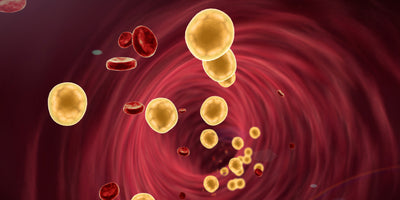
How Hydration Can Boost Your Weight Loss Journey
Introduction
Embarking on a weight loss journey is a path filled with challenges and discoveries. Among the myriad of advice on diet and exercise, one crucial element often slips under the radar—hydration. The adage "Drink Up and Slim Down" encapsulates a profound yet frequently overlooked truth: maintaining proper hydration can significantly amplify your weight loss efforts. This article delves deeper into the multifaceted roles of hydration in weight loss, exploring its impact on metabolism, appetite suppression, physical performance, and more. By understanding the science behind hydration and its direct benefits on your health and weight loss journey, you'll be equipped to use this simple, yet powerful, tool to its full potential.
The Science of Hydration and Metabolism
Water is the unsung hero of metabolism. It's not just essential for survival; it's crucial for the efficient operation of your metabolic processes. Drinking water boosts your metabolic rate, directly influencing your ability to lose weight. Research indicates that consuming 500ml of water can increase the metabolic rate by up to 30% for about an hour. This process, known as thermogenesis, helps in breaking down fats more effectively. The metabolic lift provided by water consumption is a testament to its role in aiding weight loss. But how does this work? When you drink water, your body must expend energy to heat this water to body temperature, thus burning calories in the process. This metabolic kickstart can be especially beneficial first thing in the morning, setting a positive tone for the day's metabolic activities.
Moreover, the metabolic benefits of hydration extend beyond immediate thermogenic effects. Adequate water intake supports the liver in its fat-converting functions, further aiding the fat-burning process. Ensuring you're well-hydrated means your body can perform its metabolic functions optimally, turning stored fats into energy more efficiently. It's a simple yet effective strategy that complements dietary and exercise efforts in your weight loss journey.
Water’s Role in Suppressing Appetite
Water's ability to suppress appetite is a game-changer for those looking to reduce calorie intake. Drinking water before meals can significantly decrease hunger, leading to a natural reduction in food consumption. This effect, often referred to as "water preloading," can be a simple, yet powerful strategy for weight management. A study published in the Journal of Clinical Endocrinology and Metabolism found that participants who drank water before meals consumed fewer calories and showed an increase in weight loss compared to those who did not preload with water. The mechanism behind this is twofold: water provides a sense of fullness, reducing the space in the stomach for food, and it may also temporarily quell the appetite, helping to curb overeating.
Furthermore, staying hydrated throughout the day can help differentiate between hunger and thirst signals. Often, the body's signal for thirst is misinterpreted as hunger, leading to unnecessary snacking. By keeping a water bottle at hand and sipping regularly, you can better manage hunger cues, ensuring that you eat only when truly hungry. This mindful eating approach, supported by proper hydration, can significantly contribute to your overall calorie management strategy.
Hydration and Physical Performance
Hydration's influence on physical performance is profound. Water intake is directly correlated with enhanced exercise capability, playing a pivotal role in how long and how hard you can work out. Adequate hydration ensures that your muscles are well supplied with oxygen, improves joint lubrication, and helps maintain optimal body temperature through sweating. The benefits are clear: you can exercise at higher intensities and for longer durations, burning more calories and making your workouts more effective in contributing to weight loss.
Dehydration, on the other hand, can have the opposite effect. Even mild dehydration can lead to a significant drop in performance, reducing endurance and making workouts feel much more challenging. This can demotivate individuals from engaging in physical activity, undermining weight loss efforts. It's also worth noting that hydration is crucial for recovery post-exercise. Water helps flush out toxins, speeds up muscle repair, and reduces next-day soreness, ensuring you're ready and able to hit your next workout with full intensity.
Water vs. Caloric Beverages
In the quest for weight loss, the beverages you choose play a significant role. Caloric drinks, such as sodas, juices, and sweetened teas, can stealthily contribute a significant amount of calories to your daily intake, hampering your weight loss efforts. Water, being calorie-free, emerges as a superior choice for staying hydrated without adding to your calorie count. The transition from high-calorie beverages to water can have a noticeable impact on your weight loss progress. For instance, replacing just one 20-ounce soda with water every day can save you over 240 calories, potentially leading to a weight loss of 25 pounds over a year, assuming all other factors remain constant.
This switch not only benefits your waistline but also your overall health. High-calorie drinks often contain added sugars, contributing to the risk of diabetes, heart disease, and other health issues. Water, on the other hand, supports bodily functions and promotes health without the negative consequences associated with sugary beverages. For those who find plain water unappealing, infusing it with natural flavors from fruits or herbs can make it more enticing, ensuring you stay hydrated without resorting to calorie-laden alternatives.
Hydration and Fatigue
The relationship between hydration and energy levels is significant, especially when considering the impact of dehydration on fatigue. Dehydration can lead to feelings of tiredness and lethargy, reducing your willingness and ability to engage in physical activity. This is detrimental to weight loss efforts, as less energy means fewer calories burned through exercise. Adequate hydration combats fatigue, enhancing both physical and mental energy levels. Water facilitates the transport of nutrients and oxygen to cells, supporting optimal energy production and ensuring you have the vigor needed for daily activities and exercise.
Furthermore, proper hydration can improve cognitive function, which is crucial for maintaining the motivation and focus required for a successful weight loss journey. The brain is highly sensitive to hydration levels, and even mild dehydration can impair concentration, memory, and mood. By keeping hydrated, you're not only supporting your body's physical needs but also ensuring that your mind is sharp and ready to tackle the challenges of losing weight.
Understanding Electrolytes and Weight Loss
While water is essential for hydration, the role of electrolytes—minerals such as potassium, sodium, and magnesium—cannot be overstated. These charged particles help regulate fluid balance, nerve signals, and muscle function. For individuals engaged in regular exercise or those in hot climates, maintaining electrolyte balance is crucial for optimal hydration and physical performance. Electrolytes aid in water retention where needed and ensure that hydration is effective at a cellular level, supporting endurance and reducing cramping during workouts.
Electrolytes also play a role in metabolic functions related to weight loss. For example, magnesium is involved in over 300 biochemical reactions in the body, including those that regulate energy production and muscle function. A balanced intake of electrolytes through a healthy diet or supplements, when necessary, can enhance hydration's positive effects on weight loss. It's important to note, however, that while electrolyte balance is crucial, excessive intake, particularly of sodium, can lead to water retention and high blood pressure. Thus, a balanced approach, focusing on natural sources of electrolytes, is key.
The Impact of Water on Digestion and Detoxification

Water's role in digestion is another critical aspect of its contribution to weight loss. Adequate hydration facilitates the digestive process, helping the body to efficiently break down food and absorb nutrients. Water is a major component of saliva, which starts the digestive process, and it helps dissolve fats and soluble fibre, allowing these substances to pass through the intestines more easily. By preventing constipation and promoting regular bowel movements, water aids in the elimination of waste, a vital part of the body's natural detoxification process.
Moreover, hydration supports the kidneys and liver, organs that are essential in filtering toxins and waste from the bloodstream. Proper hydration ensures that these organs function optimally, promoting the elimination of toxins and excess nutrients that may contribute to weight gain. Drinking enough water can also help prevent the buildup of certain waste products, such as uric acid, which can lead to kidney stones and other issues. By supporting the body's natural detoxification systems, water plays a direct role in maintaining a healthy weight and overall well-being.
Hydration Tips for Weight Loss
Maximising the benefits of hydration for weight loss involves more than just drinking when you're thirsty. Setting specific daily water intake goals can help ensure you're getting enough to support your weight loss efforts. A general guideline is to aim for eight 8-ounce glasses of water per day, though this can vary based on individual factors such as weight, activity level, and climate. Keeping a water bottle handy and setting reminders to drink can help you meet your hydration goals.
For those who find plain water unpalatable, there are ways to make it more appealing. Adding slices of fruits such as lemon, lime, cucumber, or berries can infuse water with flavor without adding significant calories. Herbal teas, either hot or iced, are another calorie-free way to stay hydrated and can provide a pleasant alternative to plain water. Listening to your body is also crucial; thirst is often a late indicator of dehydration, so don't wait until you're thirsty to drink. Additionally, eating foods with high water content, such as fruits and vegetables, can contribute to your overall hydration.
Dehydration and Weight Stagnation
A common but often misunderstood aspect of weight management is the impact of dehydration on weight stagnation or perceived weight gain. When the body is dehydrated, it tends to retain water as a protective measure, which can result in temporary weight gain or plateau. This water retention can be frustrating for those tracking their weight loss progress, as it may mask actual fat loss. Understanding this can help you avoid discouragement and stay committed to your weight loss goals.
Adequate hydration helps regulate this balance, ensuring that any weight fluctuations are more reflective of changes in body fat rather than water retention. It's important to focus on long-term trends in weight loss rather than short-term variations, as the latter can be influenced by factors such as hydration status, menstrual cycle, and dietary changes. By prioritising hydration, you can help minimise water retention and obtain a more accurate picture of your weight loss progress.
Personal Hydration Needs and Weight Loss Goals
Hydration needs are highly individual, influenced by factors such as body size, activity level, climate, and diet. While general recommendations provide a starting point, tailoring your water intake to your specific circumstances can enhance its benefits for weight loss. For example, individuals who are more active or live in hotter climates may require more water to compensate for increased fluid loss through sweat. Similarly, those on high-protein or high-fibre diets may need additional water to help process these nutrients.
To determine your optimal hydration level, consider factors such as your urine color (aim for pale yellow), the frequency of urination, and subjective feelings of thirst. Consulting with a healthcare professional can provide personalised advice based on your health status and weight loss goals. Remember, hydration is not a one-size-fits-all aspect of health; adjusting your intake to meet your body's needs can significantly impact your weight loss journey and overall well-being.
Summary
- Boosting Metabolism with Hydration: Drinking water increases metabolic rate through thermogenesis, aiding in the efficient breakdown of fats.
- Appetite Suppression through Preloading: Consuming water before meals can significantly reduce calorie intake by creating a sensation of fullness.
- Enhanced Physical Performance: Adequate hydration is essential for maintaining peak exercise performance, enabling longer and more intense workouts.
- Choosing Water Over Caloric Beverages: Replacing sugary and high-calorie drinks with water reduces calorie intake and supports weight loss efforts.
- Combating Fatigue: Staying hydrated boosts energy levels and motivation for physical activity, crucial for a successful weight loss journey.
- The Role of Electrolytes: Balancing electrolytes is important for effective hydration, supporting endurance, and reducing cramping during exercise.
- Digestion and Detoxification: Water aids in digestion, prevents constipation, and supports the liver and kidneys in detoxifying the body.
- Hydration Tips for Weight Loss: Setting daily water goals, enhancing water flavor naturally, and distinguishing between hunger and thirst can improve hydration habits.
- Understanding Dehydration and Weight Stagnation: Proper hydration helps minimise water retention, providing a more accurate reflection of weight loss progress.
- Tailoring Hydration to Individual Needs: Adjusting water intake based on personal factors like activity level and climate optimises hydration for weight loss.









